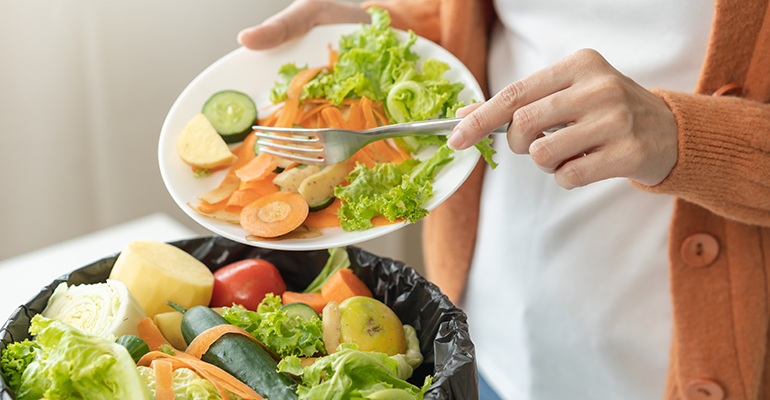News
Preserving the freshness of food to fight waste
3 Jan 2023
Several companies are producing products that absorb ethylene, the hormone that causes food to ripen, in attempt to reduce food waste.
As much as 40% of all food produced globally ends up as waste. As a global average, this food waste equates to over 2,000 calories per person per day, or the recommended daily intake for the average adult.

In monetary terms, the cost of this waste amounts to a staggering $1 trillion, according to the UN Food and Agriculture Organization (FAO). While environmentally, wasted food and the processes that go into producing it are a major source of greenhouse gas emissions and a leading contributor to climate change.
Preserving the freshness of fruit and vegetables by reducing their exposure to the hormone that causes food to ripen, otherwise known as ethylene gas, is one solution to fighting food waste. Several companies have already started experimenting with ethylene gas absorption, designing products that seek to prevent food from being thrown away by keeping it fresher for longer.
Sachets that fit in the fridge and keep food fresh
Naturpod is a Spanish company producing ethylene absorbing envelopes that, when placed in the fridge door or drawer, absorb the ethylene surrounding fresh produce and delay the ripening process. The envelopes last for around one month and are made from sustainable, eco-friendly materials that are 100% compostable and can be safely disposed of after use.
By reducing the time it takes fresh food to ripen and rot, Naturpod’s aim is to cut down on food waste by decreasing the amount of fruit and vegetables consumers buy. For at-home consumers, the Naturpod box contains three sachets and comes in at a cost of around €9.
The transportation of fresh food from farm to retailer has for a while used similar technology, such as ethylene sachets produced by Indian company, Keep It Fresh. The sachets contain a composition of zeolite powder and potassium permanganate that causes ethylene and moisture absorption while simultaneously causing volatile bacterial inhibition (VBI). Available in different gram sizes ranging from two to ten, the sachets are designed to be placed in fresh fruit and vegetables in transit from production to retail facilities.
According to the UN Environment Programme’s (UNEP) Food Waste Index Report 2021, over three quarters of all food waste comes from households (43%), food service (26%) and retail (13%). Naturpod differentiate themselves on the fact that their solution is aimed at end-consumers and food retailers, the segment of the food chain where the largest majority of waste occurs.
Regulators are clamping down on food waste
Increasingly, action is being taken by regulators to improve the sustainability of the global food system by reducing the amount of food that ends up in landfill. The European Union’s Green Deal and its Farm to Fork strategy, presented in 2019, seek to improve diets and reduce food loss across Europe, while at the same time improving the resilience of food systems and achieving carbon neutrality by 2050. Guided by targets laid out in the Farm to Fork strategy, many governments and corporates have set ambitious targets to reduce food waste by 2023 and beyond.
When it comes to tackling food waste at the legislative level, France is arguably leading the way having implemented initiatives such as that introduced in 2016 which mandates food retailers to partner with NGOs to redistribute food to those in need, rather than throwing it away. A similar policy exists in Italy which encourages retailers to donate what would be wasted food to food banks and charities without facing fines for donating food which is past its sell-by-date, in return for tax incentives. Spain’s recent food waste law which will come into force from 1 January 2023 will also require businesses to create strategies to effectively manage and cut down on food loss and waste. Spanish food businesses and retailers that do not meet the food waste targets could face financial penalties of up to €60,000.
